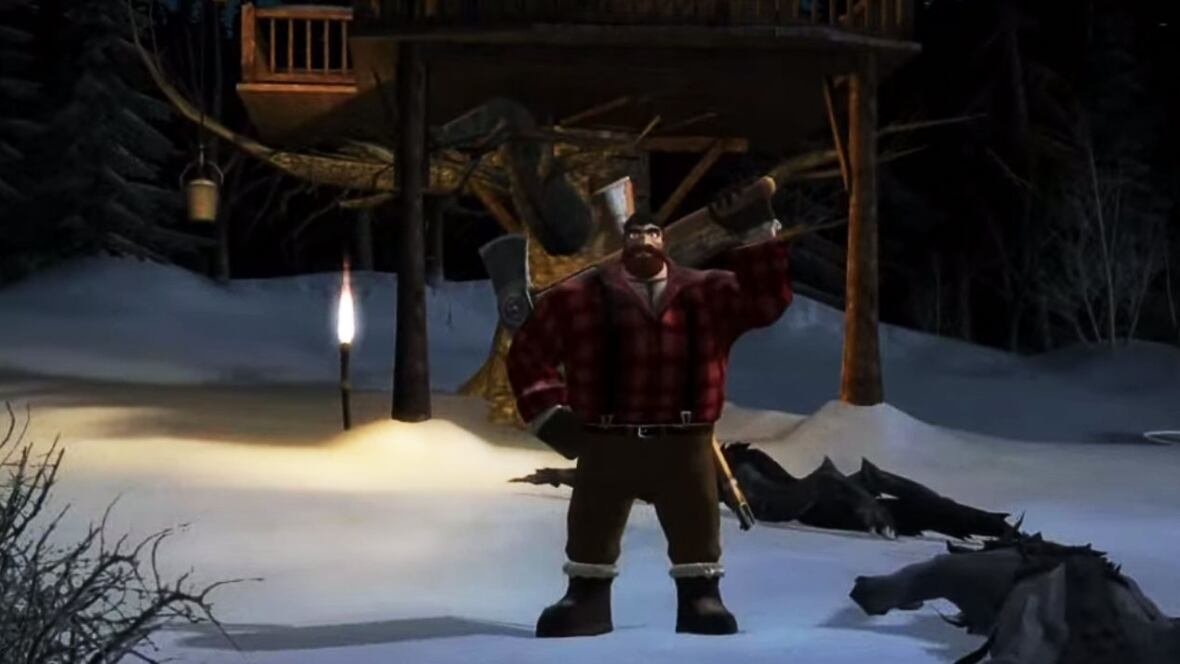New video game Kôna puts northern Quebec in spotlight
Quebec City-based production company Parabole crowdfunding for unique video game
Kôna is unlike most other video games on the market.
Set in the barren, frozen landscape of northern Quebec in the 1970s, the survival-adventure game involves the local Cree community and a mine built on sacred land.
It features snowmobiles, a soundtrack by folk-rock band CuréLabel and monsters straight out of aboriginal legend.
The game is being produced by Parabole, a Quebec City-based video game studio. It is currently crowdfunding Kôna's production costs, amassing more than $27,000 of its $40,000 target in less than a month.

The crowdfunding round closes this week.
The game takes a spin on Quebec geography and culture seldom seen in gaming even though the province has a huge video game industry.
The game's creators say it's one of the few games that feel truly Québécois, even though some of the world’s largest gaming companies have offices here. It joins Sang-Froid, a game produced by Artifice Studio which takes place in Quebec in 1848, as a small handful of games set at home.
Putting Quebec front and centre
Some critics say we're passing up an opportunity to export Quebec culture.
“I think it's also because of the risk it could take. You're trying to get the broadest appeal, so you're trying to get the most people. That's why you're going for American — not only American environments, American characters — and that's why we're seeing so few Quebec games,” said Musique-Plus video game journalist Nicolas Verge.
“In Quebec, in our cinema, we're used to being told stories that are taking place here, and I think there's a process in culture where you can explore who you are as a nation, you're trying to find your values, what's our culture, you're talking about yourselves... That's something we're not seeing in games,” Verge continued.
Parabole producer Alexandre Fiset said that a decade ago, developers had to cater to a more English-speaking audience. Times have changed, however — and now, Fiset said, it’s time to break out of that mould.
"More than 50 per cent of people play games, so I think right now is the time to start making more local stuff and I think it will somewhat protect the culture, because it will, like the game will still exist when I will be dead, so this thing will pass from generation to generation," Fiset said.
